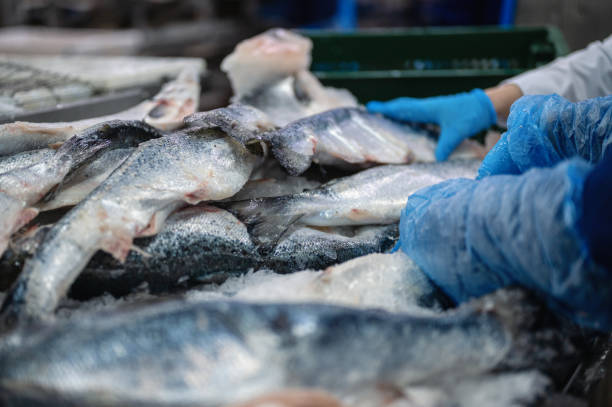How To Export Processed Fish From Nigeria: How to Sell Processed Fish Overseas?
How To Export Processed Fish From Nigeria: How to Sell Processed Fish Overseas?
The Nigerian fishing industry is relatively underdeveloped compared to other countries in the world. The country’s fishermen are not that experienced, and they use traditional methods of fishing, which are no match for the global competition. As a result, Nigeria’s seafood exports have been on the decline for years. Fortunately, there are some ways to reverse this trend. Here are few steps you can follow to export processed fish from Nigeria and sell it overseas!
The Nigerian fishing industry
Nigeria’s fishing industry is struggling because the country’s fishermen are not able to compete with other countries. They use traditional methods of fishing, which are no match for the global competition. As a result, Nigeria’s seafood exports have been on the decline for years.
In order to reverse this trend, it’s important to understand the current situation. The Nigerian fishing industry is relatively underdeveloped compared to other countries in the world. The country’s fishermen are not that experienced, and they use traditional methods of fishing, which are no match for the global competition.
Fortunately, there are some ways to reverse this trend. One way is to promote Nigeria’s seafood by showcasing its premium status. This can be done by exporting processed fish from Nigeria and selling it overseas. There are a few steps you can take in order to do so:
1) Promote Nigeria’s seafood by showcasing its premium status
2) Know your international competitors
3) Find a niche market
4) Know your target market
5) Invest in infrastructure
6) Get educated on international business regulations
7) Invest in collaborations
8) Know your export value
9) Invest in branding and awareness
10) Man
How to export processed fish from Nigeria
#1. Identify the market
#2. Export your processed fish
#3. Market your processed fish
#4. Maintain inventory
#5. Invest in new equipment
#6. Identify the best export markets
What are the challenges of the Nigerian fishing industry?
Nigeria’s fishing industry is relatively underdeveloped compared to other countries in the world.
This is because of the country’s fishermen, who are not that experienced in the methods of fishing. They use traditional methods, which are no match for the global competition.
As a result, Nigeria’s seafood exports have been on the decline for years.
Fortunately, there are some ways to reverse this trend.
Here are few steps you can follow to export processed fish from Nigeria and sell it overseas!
How can we sell processed fish in Nigeria?
Nigeria’s fishing industry is relatively underdeveloped, and they use traditional methods of fishing, which are no match for the global competition. As a result, Nigeria’s seafood exports have been on the decline for years. Fortunately, there are some ways to reverse this trend.
One solution is to turn to processed fish. Processed fish is more profitable than fresh fish, and it’s easier to export. Processed fish is typically prepared from fresh seafood by cooking it in a boiling pot with spices and seasoning. The process makes the fish easy to preserve and store. In Nigeria, processed fish is a popular delicacy served as a meal or as a snack.
Processed fish can be exported easily because it doesn’t spoil as quickly as fresh fish. For example, the process of smoking fish makes it last longer because it removes some of the moisture from it. The flavour changes as well.
So how can we sell processed fish in Nigeria? One solution is to turn to processed fish. Processed fish is more profitable than fresh fish, and it’s easier to export. Processed fish is typically prepared from fresh seafood by cooking it in a boiling pot with spices and seasoning. The process makes the fish easy to preserve and store. In Nigeria
Conclusion
The Nigerian fishing industry is relatively underdeveloped compared to other countries in the world. The country’s fishermen are not that experienced, and they use traditional methods of fishing, which are no match for the global competition. As a result, Nigeria’s seafood exports have been on the decline for years. Fortunately, there are some ways to reverse this trend. Here are few steps you can follow to export processed fish from Nigeria and sell it overseas!
Step 1: Invest in more modern fishing methods
Step 2: Invest in fish processing facilities
Step 3: Build strong relationships with buyers
Step 4: Get trained in more modern techniques of fishing
Step 5: Increase exports of seafood
Conclusion:
Nigeria’s fishing industry is underdeveloped when compared to other countries in the world. Nigeria’s fishermen are not that experienced with traditional methods of fishing, which is why they are not competitive in the global market. There are some solutions to help with this trend though.
One solution would be for companies in Nigeria to invest in more modern fishing methods, invest in fish processing facilities, build strong relationships with buyers, get trained in more modern techniques of fishing, and increase exports of seafood.








LEAVE A COMMENT
You must be logged in to post a comment.